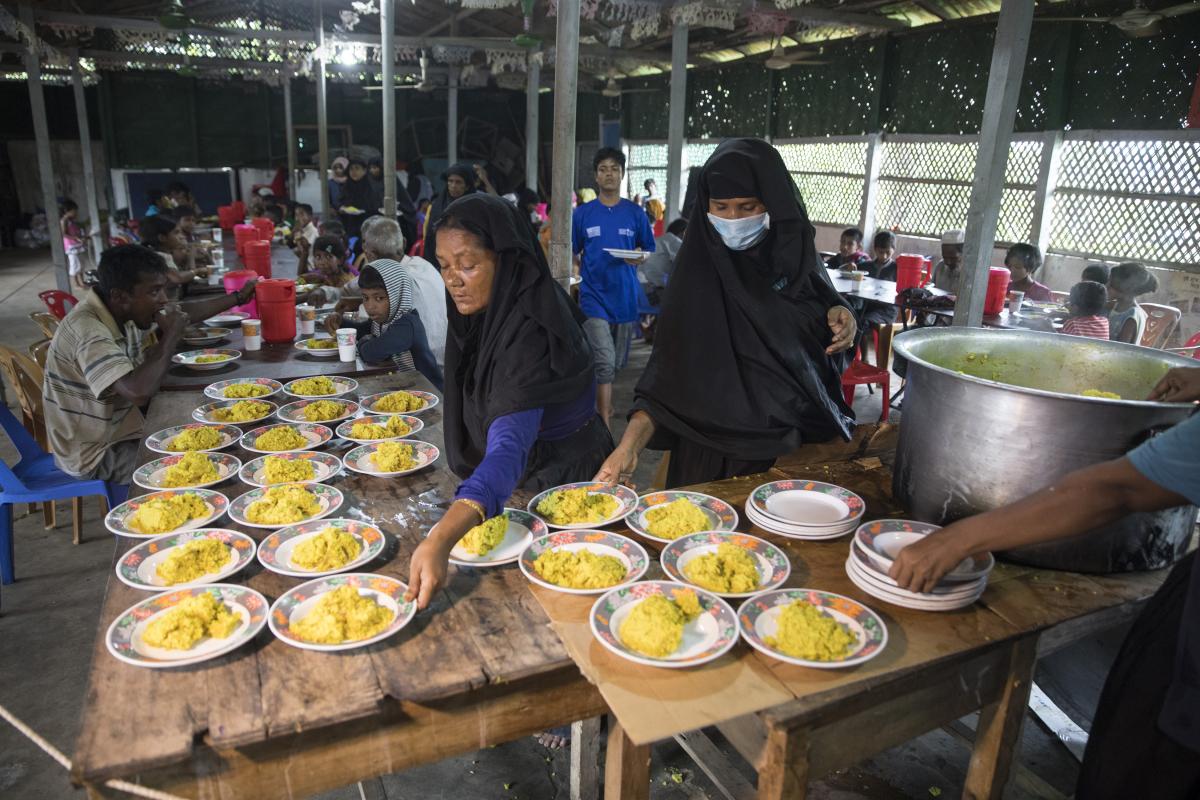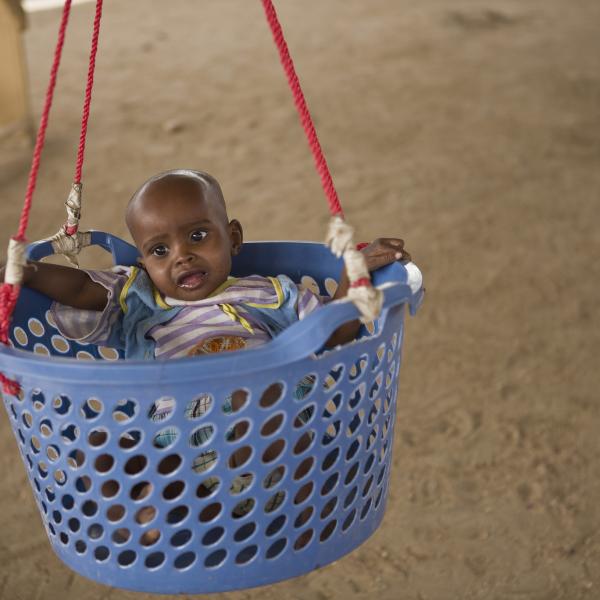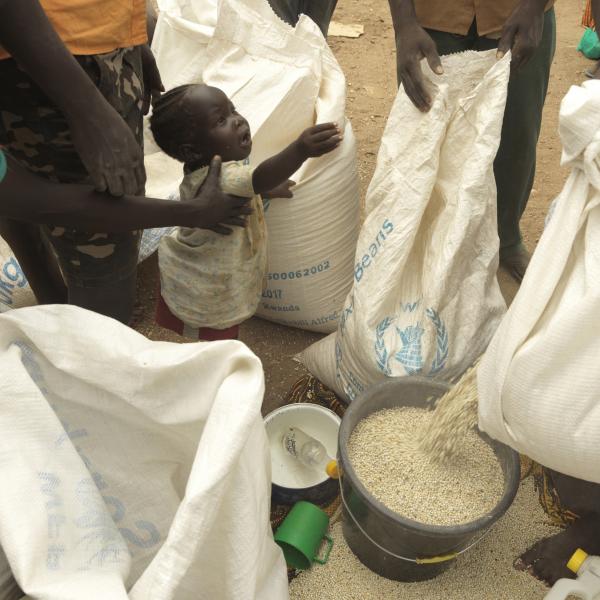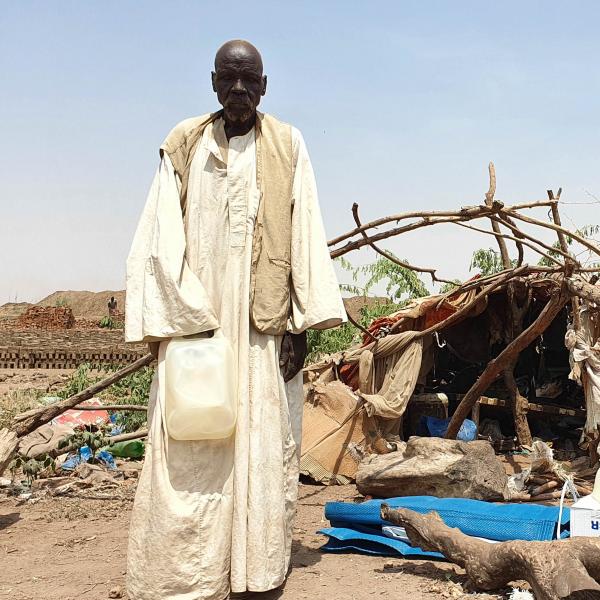UNHCR works to ensure that millions of displaced people have access to adequate food and clean water to safeguard their well-being and health.

War and forced displacement are among the main culprits when it comes to worldwide malnutrition.
Providing refugees with access to food is one of UNHCR’s top priorities; too often, people who flee arrive considerably weakened by the journey or crisis.
On the ground, in 2024:
- UNHCR prioritized the early identification and management of acute malnutrition, screening more than 2.55 million individuals in 30 countries.
- 261,000 refugee children and nearly 30,000 pregnant and breastfeeding women were treated for malnutrition.
- One in 10 refugee children in refugee settlements suffered from acute malnutrition, one in three was affected by stunting.


Fighting malnutrition
Despite UNHCR's best efforts, malnutrition still threatens to affect the most vulnerable among the displaced, such as children.
Figures speak for themselves: malnutrition is responsible for 45% of deaths among children under five.
This is why UNHCR is working closely with the World Food Programme (WFP) to coordinate an effective response to the problem of malnutrition among displaced communities.

The adverse effects of climate change
Climate change very often worsens the impact of ongoing crises.
On top of the violence and conflict people are trying to escape and survive, floods and draughts destroy their crops and livelihoods, putting them at high risk for malnutrition.